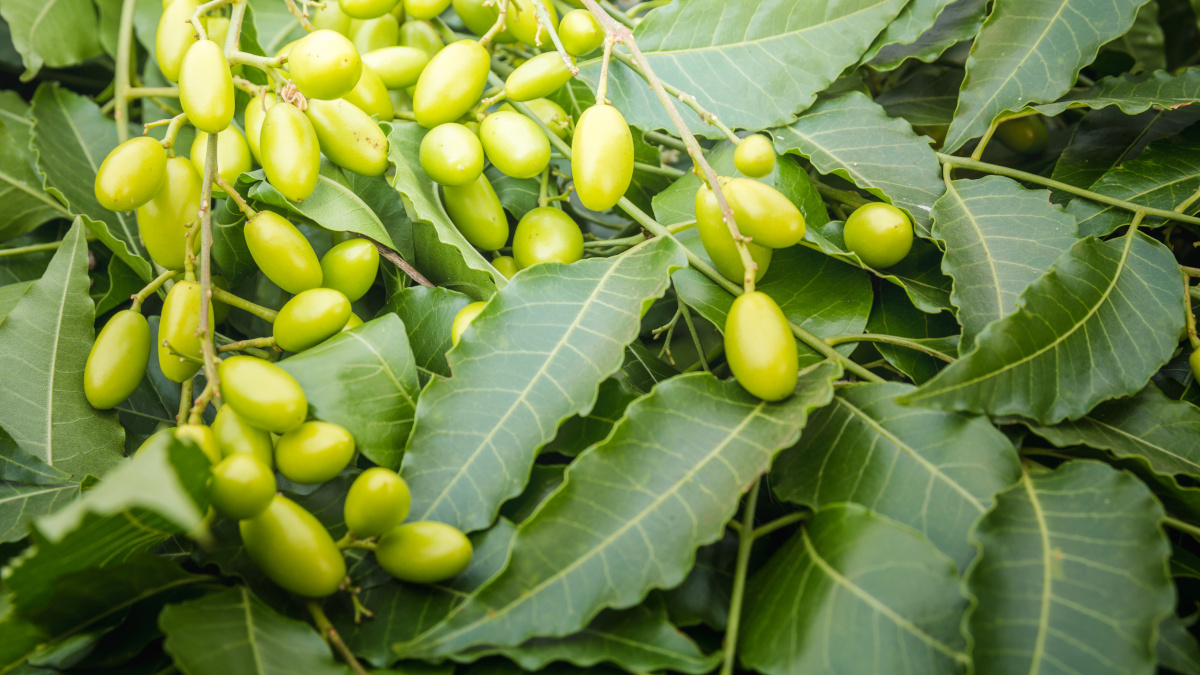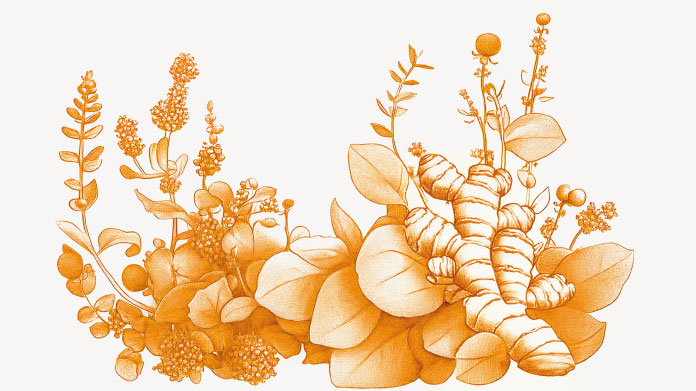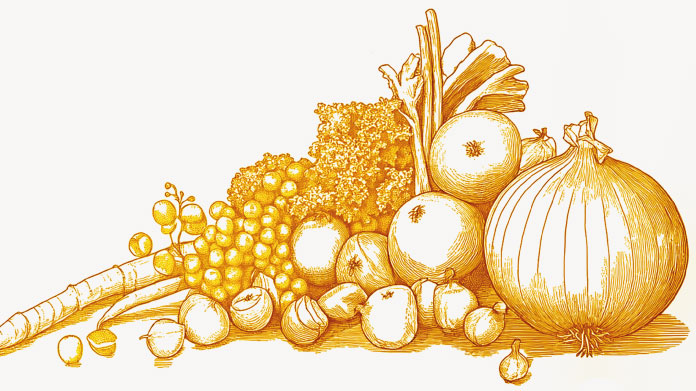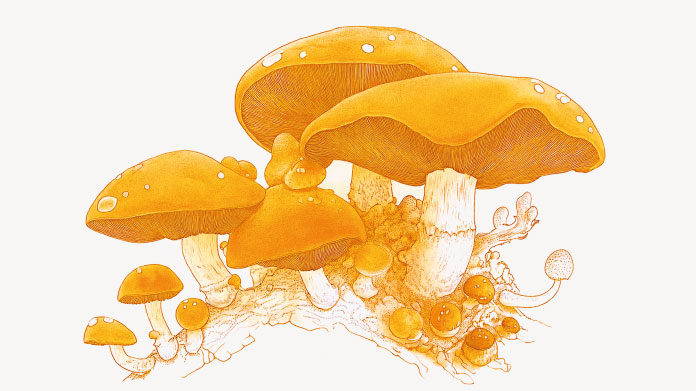Neem extract: its benefits for immunity and how to use it
Neem, or margosa, is a renowned Indian tree, the Sanskrit name of which - ‘nimba’ - means ‘to give good health’. Does it genuinely benefit the immune system and how can you get the most out of it?

Margosa or neem
Azadirachta indica is a tree of about 20 meters’ height, known as margosa, or neem, the anglicised version of the Bengali ‘nim’.
Its olive-like fruit contains a seed from which the famous neem oil is extracted. But according to Ayurvedic medicine, all the other parts of the tree can also be used: the bark, roots and leaves.
Neem, the multi-purpose tree
Neem has a particularly wide range of applications. In India, its flowers and leaves are used in cooking. For example, you can fry its leaves with aubergines or other vegetables to make a typical Indian starter.
In Cambodian cooking, it’s used raw in various recipes: sauces, curries, salads, etc. Neem’s strong, bitter taste is very popular in the extreme heat of May, just before the rainy season.
Back in India, neem leaves are left in cupboards to repel insects that eat clothes, or that lay their eggs in food supplies.
Neem is also used as an ingredient in cosmetic preparations. Its oil (not the culinary kind but one for external use only) helps relieve skin problems including a dry scalp. It’s also used in treatments for headlice.
Using neem in the garden
Gardeners use neem for getting rid of parasites naturally. Incidentally, this compound was the subject of biopiracy in the 1990s, when a multinational corporation called WR Grace appropriated its use by filing 70 patents. In doing so, they deprived the indigenous population of the right to freely use the resources of this tree, even though it had been christened ‘the people’s pharmacy’ by the Indians.
In the end, after a hard-fought, 10-year battle, the patents were revoked as the properties of the neem tree had been known for more than 2000 years. You cannot claim exclusive use of a plant if you yourself have not discovered an effect for it.
What is neem composed of?
Neem consists of 15% tannin, proteins, fatty acids and polysaccharides. It also contains other substances at various concentrations depending on the part of the plant :
- alkaloids;
- isoprenoids;
- flavonoids - pigments with antioxidant properties ;
- nimbolide, etc.
Neem’s multiple benefits
Once ingested (in the various forms described below), neem helps to support the body’s natural defenses (1). It’s particularly beneficial for digestive health (2) and the skin (3).
In addition, neem leaves support healthy eye function (4) and sugar metabolism(5). Its bark has antioxidant and anti-pyretic properties(6) - it helps lower temperature in the case of a fever. Finally, neem bark has displayed beneficial effects on the liver(7), an organ vital for multiple functions.
Neem: how should it be used and at what dose?
Firstly, neem can be consumed as a herbal tea, using either the leaves or the bark, although the latter is harder to find. To make a tea, infuse a teaspoon of dried neem in a cup of hot water for around 10 minutes. For optimal efficacy, drink 2-3 cups a day.
To increase your intake of neem, you can also ingest an extract in the form of a dietary supplement, such as Neem Extract. Neem extract capsules are quick and easy to take when you’re out and about, and do not require any special preparation. In terms of dosage, we recommend 1500mg a day (that’s three capsules) for active support of your immune system. It should be noted, however, that neem extract is not recommended for pregnant women. If in doubt, seek advice from your doctor.
As for topical use, poultices made from powdered neem leaf or bark mixed with a little water can be applied to the skin to relieve common problems : redness, acne, etc. Neem oil can also be applied daily to the skin, nails and hair in the form of a mask.
References
- Alzohairy MA. Therapeutics Role of Azadirachta indica (Neem) and Their Active Constituents in Diseases Prevention and Treatment. Evid Based Complement Alternat Med. 2016;2016:7382506. doi:10.1155/2016/7382506
- Bandyopadhyay U, Biswas K, Sengupta A, Moitra P, Dutta P, Sarkar D, Debnath P, Ganguly CK, Banerjee RK. Clinical studies on the effect of Neem (Azadirachta indica) bark extract on gastric secretion and gastroduodenal ulcer. Life Sci. 2004 Oct 29;75(24):2867-78. doi: 10.1016/j.lfs.2004.04.050. PMID: 15454339.
- Kumar VS, Navaratnam V. Neem (Azadirachta indica): prehistory to contemporary medicinal uses to humankind. Asian Pac J Trop Biomed. 2013;3(7):505-514. doi:10.1016/S2221-1691(13)60105-7
- EFSA Register of Questions - https://www.efsa.europa.eu/en/register-of-questions
- Alzohairy MA. Therapeutics Role of Azadirachta indica (Neem) and Their Active Constituents in Diseases Prevention and Treatment. Evid Based Complement Alternat Med. 2016;2016:7382506. doi:10.1155/2016/7382506
- National Research Council (US) Panel on Neem. Neem: A Tree For Solving Global Problems. Washington (DC): National Academies Press (US); 1992. 7, Medicinals. Available from: https://www.ncbi.nlm.nih.gov/books/NBK234637/
- Alzohairy MA. Therapeutics Role of Azadirachta indica (Neem) and Their Active Constituents in Diseases Prevention and Treatment. Evid Based Complement Alternat Med. 2016;2016:7382506. doi:10.1155/2016/7382506
Keywords
1 Days
Order was shipped on time and packaged…Wonderful Jobs!
Order was shipped on time and packaged excellently.
DMHoge
7 Days
great products and prices
great products and prices
Marie
13 Days
Easy to navigate site
Easy to navigate site, had what I was searching for, good price. easy order-check out
James Tucker
19 Days
My skin is clearing up nicely!
Pretty good for my skin so far.
Christian
21 Days
The new packaging is excellent
The new packaging is excellent - finally! No more squashed boxes and torn envelopes.
GORAN
22 Days
Great Product
Great Product
Larry Garrett
26 Days
Quick shipping
Quick shipping; good price. No issues!
Mary McCarty
28 Days
Thr product is very good and is helping…
Thr product is very good and is helping me on my health. Then is always on time
LUGO Luz
30 Days
Buying was fine
Buying was fine. I had problems with the website not recognizing my login info, and had to call to get it fixed. Other than that, everything was good.
David S. Clark
30 Days
Your super maca and super ginseng are…phenomenal
Your super maca and super ginseng are phenomenal supplements that compliment each other when taking them together. Fantastic feeling of well-being and lots of mid day energy without the crash.
Keith Mason
33 Days
I have had amazing results with every…
I have had amazing results with every supplement I've purchased. I am extremely satisfied with this company
kirstin Torres
33 Days
Fine products
Fine products . They are on the leading edge of online supplements. The only issue -so far-is they sometime run out of subscription items.
Jason Argos
36 Days
The ordering process is very user…
The ordering process is very user friendly and the products always come in a timely manner.
CARTER Rhonda
37 Days
The price for Dr
The price for Dr. Pero's AC-11 is reasonable and in line with his views. (my former colleague). Keep it pure.
CAMPBELL Clayton
40 Days
Right on every time.
Right on every time.
Arthur Nicholas




